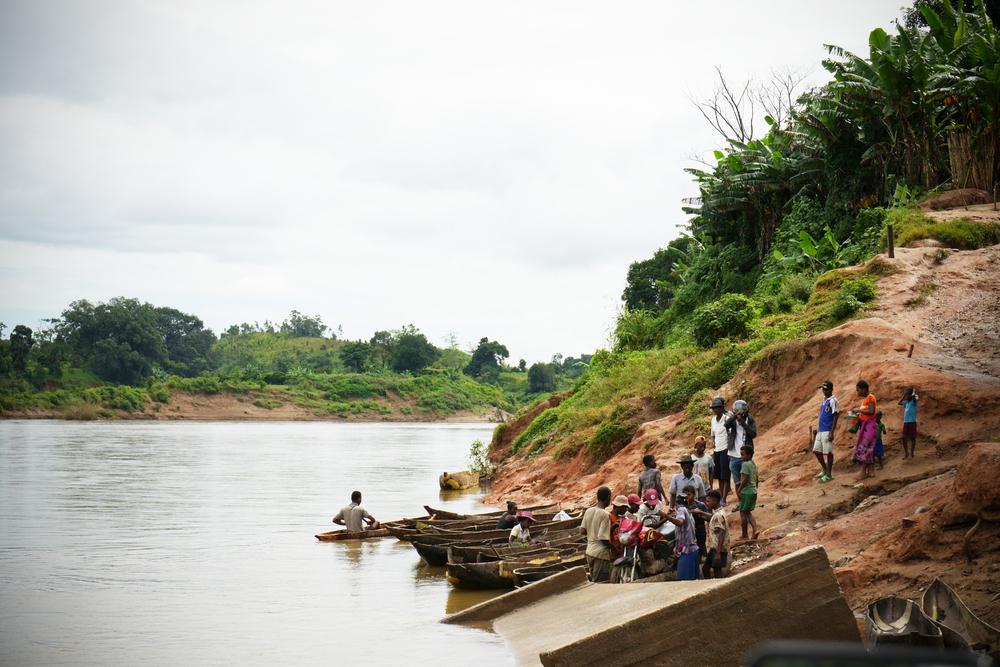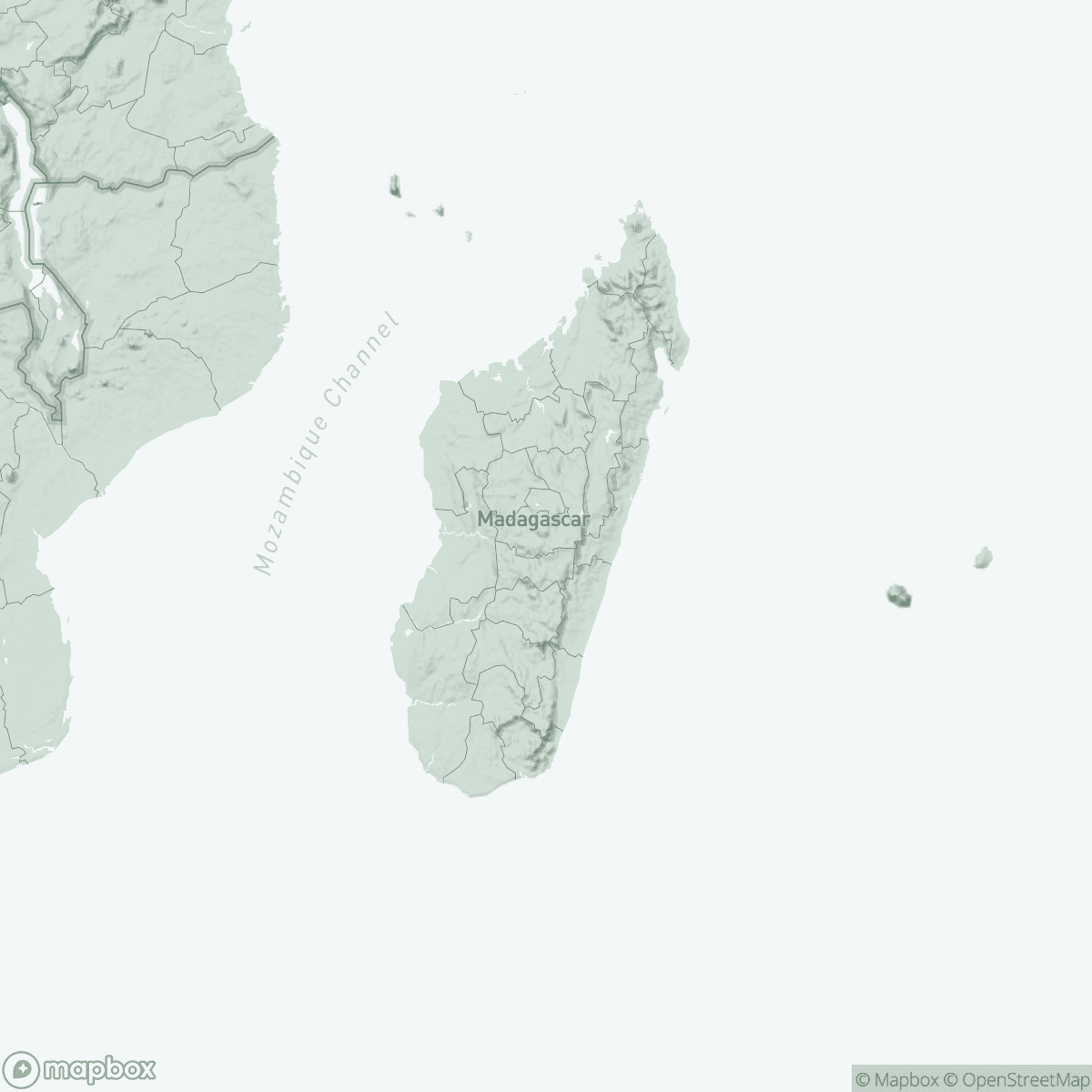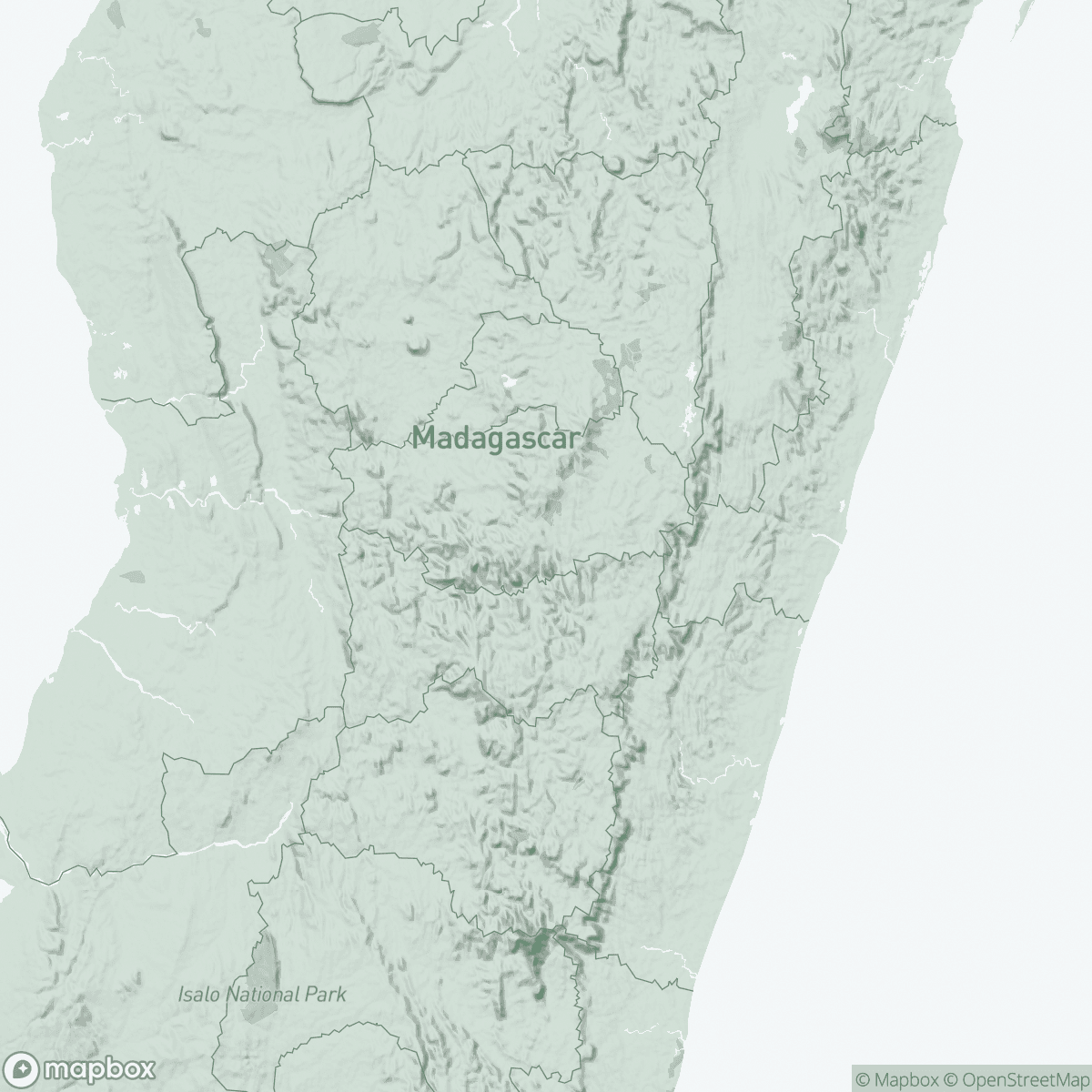
Climate Change Worsens Food Insecurity for Vulnerable Populations
In 1 click, help us spread this information :
As one of the countries most threatened by climate change, Madagascar is particularly exposed to recurring natural disasters, as demonstrated by the passage of Batsirai and Emnati—two devastating cyclones in 2022 that destroyed vital infrastructure, flooded crops, and worsened the living conditions of the population. The country's southeastern region, already vulnerable, saw its nutritional situation worsen significantly. In 2022, 19,195 children under five years old diagnosed at health centers in the southeast suffered from malnutrition, prompting an emergency intervention by MSF in the region.
"The cyclones Batsirai and Emnati completely changed our lives. At the time, the two cyclones destroyed our crops. If the winds didn't ravage them, the floods finished them off. Since that episode, we haven't had enough food for the entire year. Our harvests are no longer sufficient. We face periods of famine," says Soa Arilette, the mother of a malnourished child treated by MSF in Ambolomadinika, a village located in Ikongo district.
Soa Arilette is not the only one facing these changes. Agriculture is the primary source of income for the population, and the two cyclones drastically disrupted the nutritional situation. The floods destroyed rice, cassava, and vegetable plots, while the strong winds damaged rainfed and perennial crops. According to a report from Madagascar's Ministry of Agriculture and Livestock in 2022, it was estimated that more than 60% of agricultural land in the country was affected by these disasters, leaving more than 98,000 households in need.
A New Nutritional Dynamic
In the Ikongo district, a southeastern region of Madagascar where MSF has been working since 2022, malnutrition was rare before the cyclones hit. Rates were generally stable at around 1%. However, after these two cyclones, food conditions drastically changed. Rates stood at 6% in 2024, after peaking at 17% in 2022 after the Batsirai and Emnati. This figure highlights the communities' inability to recover quickly and the increased vulnerability of households, as explained in a report by the Ministry of Agriculture and Livestock
"We had never had such difficulty feeding ourselves before Batsirai. Since then, it's as if everything has collapsed. We struggle to find enough to eat all year round, and it's even harder when our harvests run out," says Soa Arilette.
In remote areas like Ikongo, the health and food situation has become even more fragile since the cyclones. Although agricultural activities have resumed, the harvests remain insufficient to cope with the lean periods, which last from February to April and October to December. These periods coincide with the rainy and cyclone seasons, making crops vulnerable. In Ikongo, during the lean periods, the number of admissions can reach 300 to 700 cases per month, whereas during the harvest period, health centers only register 90 to 200 cases of malnutrition.

"During harvest periods, the population has more or less enough to eat. But outside of these times, communities face real difficulties in finding food. As children are the most vulnerable, they are the most affected by the situation," explains Ambinison, head of the Ambolomadinika Health Center, one of the six health centers supported by MSF for malnutrition in the Ikongo district. Despite these challenges, the community is actively working to face malnutrition.
The population's reliance on climatic conditions, exacerbated by climate change, significantly impacts food security. Recurring episodes of cyclones and floods make crops increasingly uncertain, further aggravating malnutrition. The malnutrition rate in farming regions like Ikongo largely depends on the rainy and cyclone seasons. During peak periods, the overall malnutrition rate can reach 17%, as in 2022 after the passage of cyclones Emnati and Batsirai, while during harvest periods, it remains relatively stable at around 4%.
Health Interventions in the Ikongo District
The Ikongo district in southeastern Madagascar illustrates the challenges of geographic isolation and vulnerability to climatic threats. Poor road conditions and the increasing frequency of natural disasters make access to healthcare and the delivery of humanitarian aid difficult.
MSF's presence in the Ikongo district is making a significant difference in the fight against malnutrition. Since 2022, our teams have been working in collaboration with the Ministry of Public Health to implement a malnutrition control program. This joint effort has led to a remarkable change in the nutritional situation in the district. Dr. Faustin Yamtemadji, the medical referent of the Ikongo project, notes, "The nutritional situation in the Ikongo district has changed significantly since MSF has been working alongside the Ministry to support them in addressing malnutrition. Between the year 2023 and June 2024, a reduction of more than 50% in cases of severe malnutrition and an 8% decrease in cases of moderate malnutrition have been reported during the same period."

Since the project's launch, our teams have diagnosed and treated 4,140 children suffering from malnutrition. Initially, MSF focused on treating the most severe cases. However, in February 2024, to combat malnutrition more effectively, MSF expanded its efforts to include both moderate and severe acute malnutrition. Today, MSF supports six basic health centers offering primary CRENAS (outpatient therapeutic feeding center) services, as well as one CRENI (intensive nutritional recovery center) for diagnosing and treating malnourished children in the Ikongo district year-round.
In the coming months, Médecins Sans Frontières plans to intensify its interventions by collaborating with other partners, the Ministry of Health, and local communities to better address the impacts of climate change. This multidisciplinary project will provide medical support while tackling environmental challenges and focusing on livelihoods, access to water and sanitation, and education.
MSF conducted an emergency intervention in the Nosy Varika and Ikongo districts following the devastating cyclones Batsirai and Emnati in 2022. In the aftermath, our teams were quickly mobilized in Nosy Varika, focusing on maternal health, malnutrition, water supply, and the rehabilitation of health centers. Today, MSF maintains its presence in the Ikongo district, providing support for vulnerable communities in Madagascar.

